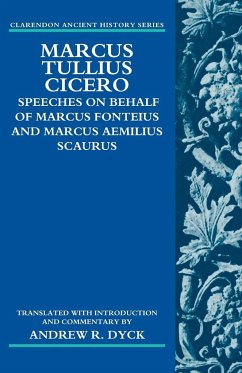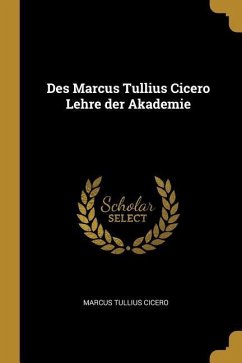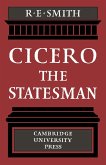Besides his renowned prosecution of Gaius Verres, Cicero also appeared as defense counsel in a number of cases in which former governors were accused of misconduct in the provinces. This volume unites two such defenses, both incompletely preserved, from an early phase of Cicero's career (ca. 69 BC) and from his maturity (54 BC). The first speech is on behalf of Marcus Fonteius. Fonteius was governor of Transalpine Gaul probably from 74 to 72 BC, a time when the Romans were consolidating their control of that province and simultaneously fighting a bitter war with rebels under Sertorius in the Iberian Peninsula. Cicero defends Fonteius with the argument that his measures, though severe, were in the state interest. The second speech is on behalf of Marcus Aemilius Scaurus, governor of Sardinia in 55, whose charges included not only peculation but also cruelty and hounding a woman to suicide through his unwanted attentions. In both cases Cicero seeks to stir Roman prejudice against the foreign witnesses testifying for the prosecution. The outcome of Fonteius' case is not clear from surviving evidence, but Scaurus was acquitted, only to be condemned and exiled on charges of corrupt electoral practices three years later. Dyck's volume provides a general introduction on the Roman extortion court and, for each speech, an introduction, English translation, and the first detailed commentary in English.








